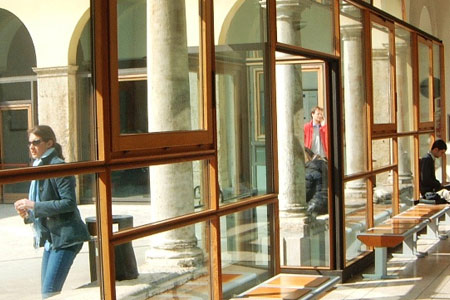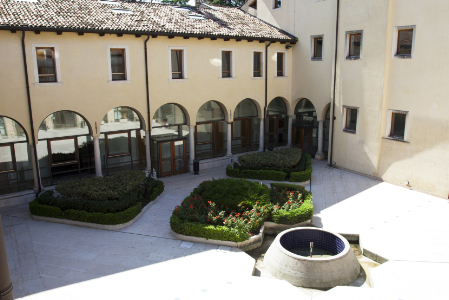C.L.A.S.S.4EU means 4 EU training sessions on family law regulations for Cross-border Lawyers And Social Services.
The project (JUST-JTRA-EJTR-AG-2016-763874) is coordinated by the University of Verona, represented by Prof Maria Caterina Baruffi (Full Professor of International Law), and the other international partners are the University of Milano Bicocca, represented by Prof Costanza Honorati, the University of Minho (Braga, Portugal), represented by Prof Anabela de Sousa Gonçalves, the Law Institute of Lithuania, represented by Prof Agne Limante, and Eötvös Loránd University (Budapest, Hungary), represented by Prof Orsolya Szeibert.
The Project’s objectives are identifying the difficulties met by targeted practitioners in applying the EU family regulations; improving the knowledge of such practitioners regarding the regulations and their interplay, thus facilitating dialogue between practitioners from different countries and different backgrounds; developing a common expertise and promoting harmonization of principles, standards and methodology according to the specificity of cross-border relations; fostering EU net-building processes among the practitioner of different Member States.
The project intends to pay due attention to the very sensitive aspects of legal separation and divorce, as well as the protection of children involved in cross-border family disputes. Therefore, the main target groups involve lawyers and legal practitioners in general, as well as social services staff, given that the protection of children's rights in transnational disputes requires the support of a variety of experts from different disciplines. Besides organizing training activities addressed to such target groups, the project aims to create a train-the-trainers tool on the implementation of the EU Regulations (2201/2003, 4/2009, 1259/2010) and their interplay with the Hague conventions regarding family matters, such as the 1996 Child Protection and 1980 International Child Abduction Conventions, and the 2007 Recovery Convention and Protocol.
The main activities planned during the project’s span are envisaged as follows: target groups’ training needs assessment (WS1); preparing and testing the training content during two preliminary transnational sessions (WS1-2); improving the training content for the delivery of two final transnational sessions on a larger scale (WS2-3); uploading the training materials on the project website as ready-to-use materials (WS4); creation of a train-the-trainers tool to be presented during the project’s final conference (WS4-5).








